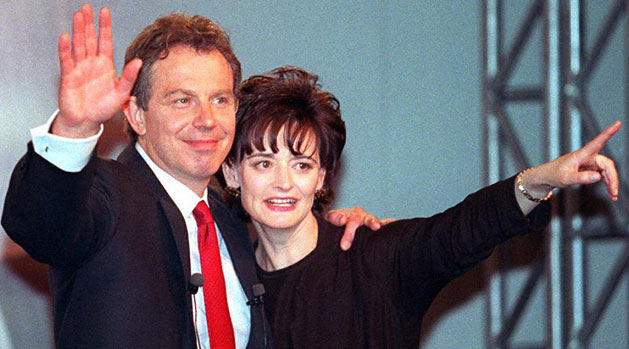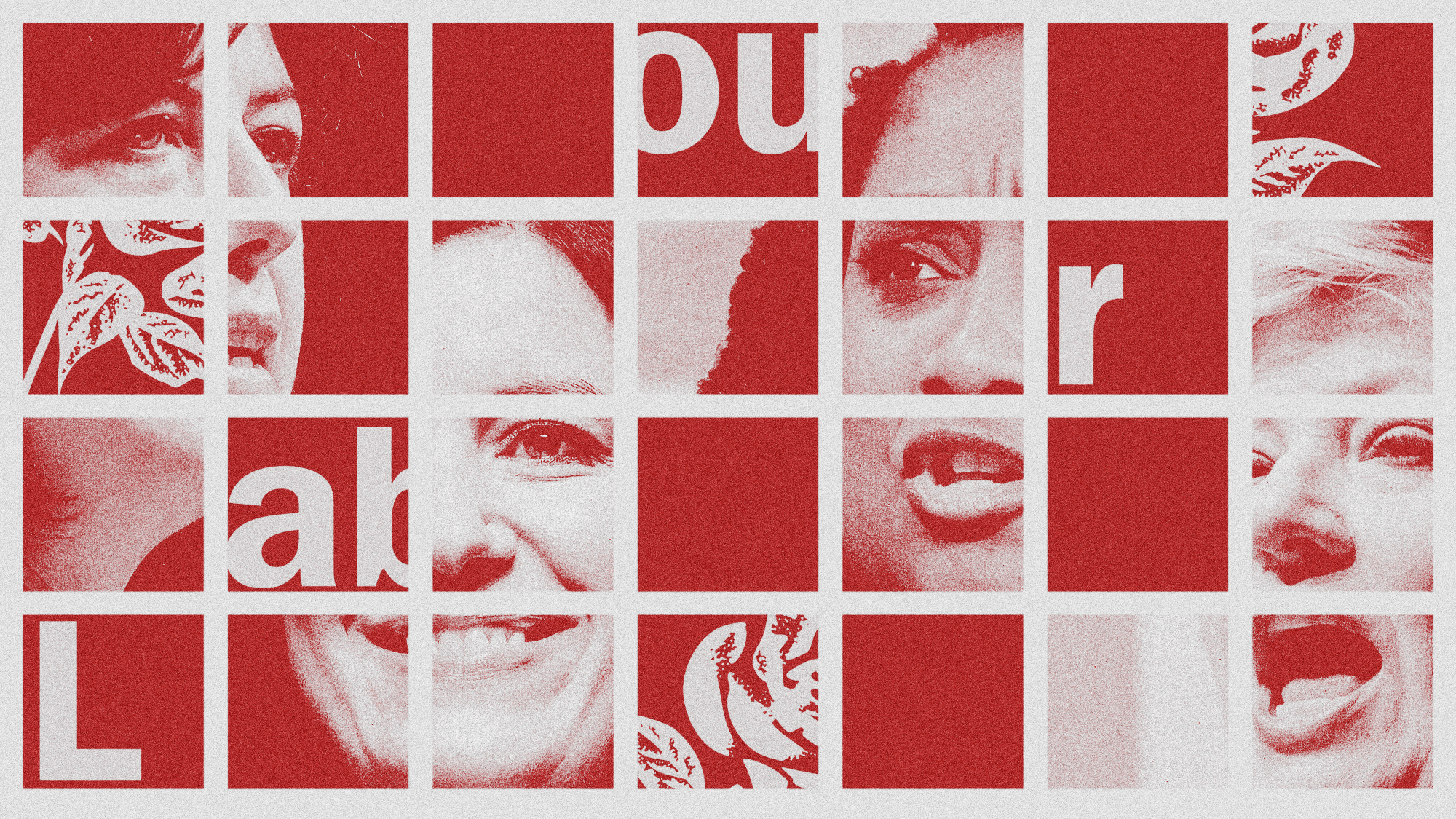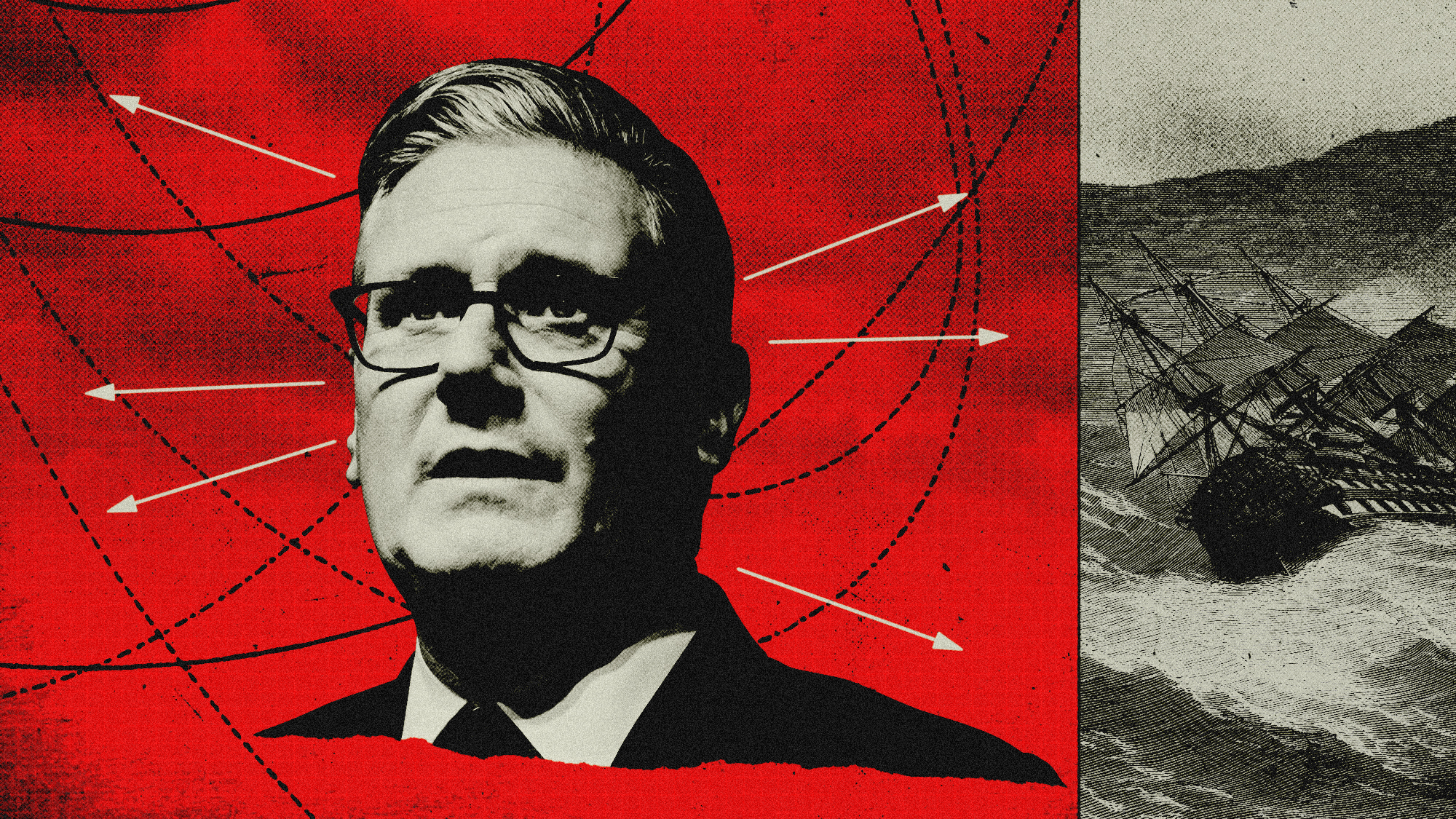New Labour leader: is the tilt to Blair misguided?
Miliband himself may have failed to cut through – but his policies were largely popular, argues Guardian columnist

A free daily email with the biggest news stories of the day – and the best features from TheWeek.com
You are now subscribed
Your newsletter sign-up was successful
Tristram Hunt took his decision not to run for Labour Party leader yesterday because he didn't want to split the Blairite vote and deny Liz Kendall the chance of victory.
But is a Blairite – or so-called moderniser – really what Labour needs if it is to regain power?
There is no evidence, argues Seumas Milne in The Guardian, that it was Ed Miliband's leftish agenda that lost Labour the election.
The Week
Escape your echo chamber. Get the facts behind the news, plus analysis from multiple perspectives.

Sign up for The Week's Free Newsletters
From our morning news briefing to a weekly Good News Newsletter, get the best of The Week delivered directly to your inbox.
From our morning news briefing to a weekly Good News Newsletter, get the best of The Week delivered directly to your inbox.
Yes, Miliband was unable to cut through as a leader; and, yes, the party under his direction failed to regain the economic credibility lost in the crash of 2008. But his policies were largely popular, says Milne.
"The mansion tax, 50 per cent top tax rate and privatised energy price freeze were among Labour's most popular policies. And polling has regularly found large majorities want the government to be tougher on big business – as well as an end to austerity."
Yet as well as Kendall, the two leading candidates – Andy Burnham and Yvette Cooper – have also fallen in behind a Blairite agenda, attacking Miliband's leadership for being anti-business and too ready to impose tax hikes on high-earners.
"The only rational explanation," says Milne, "is that they're responding not to the electorate but the corporate-owned press and the City, who would have had to stump up a bit more if Labour had won and conducted a ferocious campaign against Miliband to prevent any such outcome."
A free daily email with the biggest news stories of the day – and the best features from TheWeek.com
In short, none of the leadership candidates has an agenda that reflects public - let alone Labour - opinion, says Milne. "Last week, ten newly elected MPs demanded an 'alternative to austerity' instead of a return to 'the New Labour creed of the past'. But without a candidate prepared to challenge the lurch to the right, the terms of Labour's debate will be set by the media and Blair revivalists."
Labour needs to take back control of its own contest, Milne concludes, or the union disaffiliation threatened in recent days could become a reality and eventually trigger a party split.
-
 Sepsis ‘breakthrough’: the world’s first targeted treatment?
Sepsis ‘breakthrough’: the world’s first targeted treatment?The Explainer New drug could reverse effects of sepsis, rather than trying to treat infection with antibiotics
-
 James Van Der Beek obituary: fresh-faced Dawson’s Creek star
James Van Der Beek obituary: fresh-faced Dawson’s Creek starIn The Spotlight Van Der Beek fronted one of the most successful teen dramas of the 90s – but his Dawson fame proved a double-edged sword
-
 Is Andrew’s arrest the end for the monarchy?
Is Andrew’s arrest the end for the monarchy?Today's Big Question The King has distanced the Royal Family from his disgraced brother but a ‘fit of revolutionary disgust’ could still wipe them out
-
 How corrupt is the UK?
How corrupt is the UK?The Explainer Decline in standards ‘risks becoming a defining feature of our political culture’ as Britain falls to lowest ever score on global index
-
 How long can Keir Starmer last as Labour leader?
How long can Keir Starmer last as Labour leader?Today's Big Question Pathway to a coup ‘still unclear’ even as potential challengers begin manoeuvring into position
-
 The high street: Britain’s next political battleground?
The high street: Britain’s next political battleground?In the Spotlight Mass closure of shops and influx of organised crime are fuelling voter anger, and offer an opening for Reform UK
-
 Is a Reform-Tory pact becoming more likely?
Is a Reform-Tory pact becoming more likely?Today’s Big Question Nigel Farage’s party is ahead in the polls but still falls well short of a Commons majority, while Conservatives are still losing MPs to Reform
-
 Taking the low road: why the SNP is still standing strong
Taking the low road: why the SNP is still standing strongTalking Point Party is on track for a fifth consecutive victory in May’s Holyrood election, despite controversies and plummeting support
-
 The runners and riders for the Labour deputy leadership
The runners and riders for the Labour deputy leadershipThe Explainer Race to replace Angela Rayner likely to come down to Starmer loyalist vs. soft-left MP supported by backbenchers and unions
-
 How should Keir Starmer right the Labour ship?
How should Keir Starmer right the Labour ship?Today's Big Question Rightward shift on immigration and welfare not the answer to 'haemorrhaging of hope, trust and electoral support'
-
 What difference will the 'historic' UK-Germany treaty make?
What difference will the 'historic' UK-Germany treaty make?Today's Big Question Europe's two biggest economies sign first treaty since WWII, underscoring 'triangle alliance' with France amid growing Russian threat and US distance